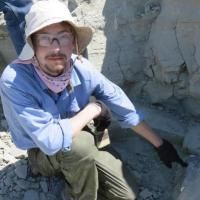A digital collection of rare and endangered lemurs and other primates from the Duke Lemur Center.
Date
2019-01
Editors
Journal Title
Journal ISSN
Volume Title
Repository Usage Stats
views
downloads
Citation Stats
Attention Stats
Abstract
Scientific study of lemurs, a group of primates found only on Madagascar, is crucial for understanding primate evolution. Unfortunately, lemurs are among the most endangered animals in the world, so there is a strong impetus to maximize as much scientific data as possible from available physical specimens. MicroCT scanning efforts at Duke University have resulted in scans of more than 100 strepsirrhine cadavers representing 18 species from the Duke Lemur Center. An error study of the microCT scanner recovered less than 0.3% error at multiple resolution levels. Scans include specimen overviews and focused, high-resolution selections of complex anatomical regions (e.g., cranium, hands, feet). Scans have been uploaded to MorphoSource, an online digital repository for 3D data. As captive (but free ranging) individuals, these specimens have a wealth of associated information that is largely unavailable for wild populations, including detailed life history data. This digital collection maximizes the information obtained from rare and endangered animals with minimal degradation of the original specimens.
Type
Department
Description
Provenance
Citation
Permalink
Published Version (Please cite this version)
Publication Info
Yapuncich, Gabriel S, Addison D Kemp, Darbi M Griffith, Justin T Gladman, Erin Ehmke and Doug M Boyer (2019). A digital collection of rare and endangered lemurs and other primates from the Duke Lemur Center. PloS one, 14(11). p. e0219411. 10.1371/journal.pone.0219411 Retrieved from https://hdl.handle.net/10161/26039.
This is constructed from limited available data and may be imprecise. To cite this article, please review & use the official citation provided by the journal.
Collections
Scholars@Duke

Gabriel Yapuncich
I hail from the great mountain states of Montana (the state of my birth) and Wyoming (the state of my childhood). I have a bachelor's degree in English literature from the University of Wisconsin and a bachelor's degree in the evolutionary biology from Columbia University. I completed my PhD in evolutionary anthropology at Duke University in March 2017, working with Dr. Doug M. Boyer. I have taught gross and microanatomy to Duke University School of Medicine students since 2018. In 2021, I joined the DUSOM MD program as an Assistant Professor of the Practice of Medical Education and Director of Accreditation and Continuous Quality Improvement.

Douglas Martin Boyer
Unless otherwise indicated, scholarly articles published by Duke faculty members are made available here with a CC-BY-NC (Creative Commons Attribution Non-Commercial) license, as enabled by the Duke Open Access Policy. If you wish to use the materials in ways not already permitted under CC-BY-NC, please consult the copyright owner. Other materials are made available here through the author’s grant of a non-exclusive license to make their work openly accessible.
